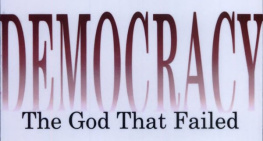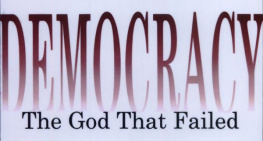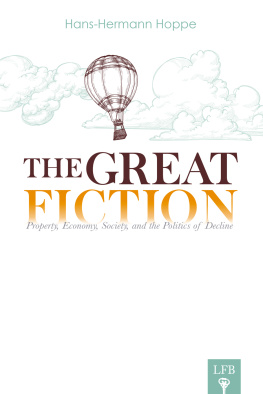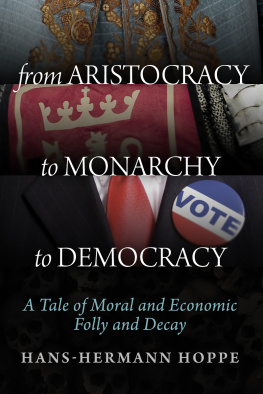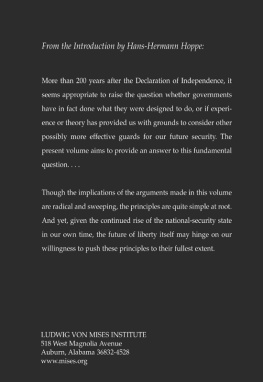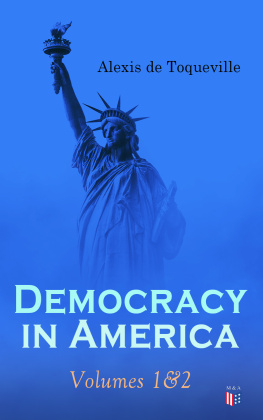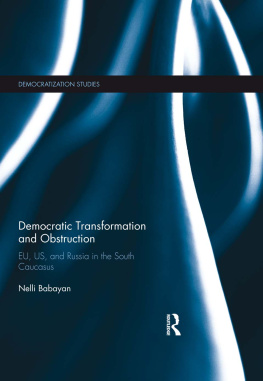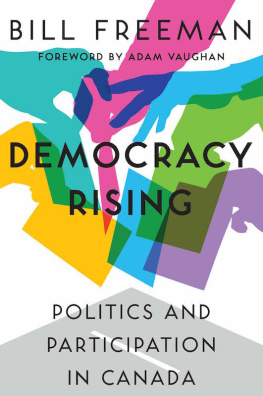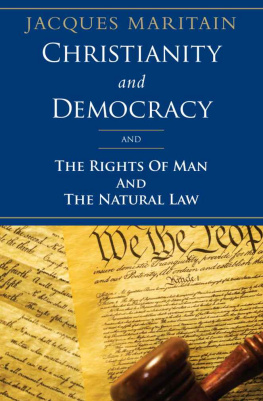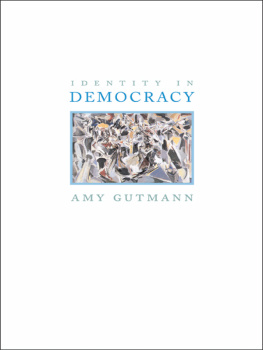Hans-Hermann Hoppe - Democracy - The God That Failed: The Economics and Politics of Monarchy, Democracy, and Natural Order
Here you can read online Hans-Hermann Hoppe - Democracy - The God That Failed: The Economics and Politics of Monarchy, Democracy, and Natural Order full text of the book (entire story) in english for free. Download pdf and epub, get meaning, cover and reviews about this ebook. City: London, New Brunswick, year: 2003, publisher: Translation Publishers, genre: Romance novel. Description of the work, (preface) as well as reviews are available. Best literature library LitArk.com created for fans of good reading and offers a wide selection of genres:
Romance novel
Science fiction
Adventure
Detective
Science
History
Home and family
Prose
Art
Politics
Computer
Non-fiction
Religion
Business
Children
Humor
Choose a favorite category and find really read worthwhile books. Enjoy immersion in the world of imagination, feel the emotions of the characters or learn something new for yourself, make an fascinating discovery.
- Book:Democracy - The God That Failed: The Economics and Politics of Monarchy, Democracy, and Natural Order
- Author:
- Publisher:Translation Publishers
- Genre:
- Year:2003
- City:London, New Brunswick
- Rating:4 / 5
- Favourites:Add to favourites
- Your mark:
Democracy - The God That Failed: The Economics and Politics of Monarchy, Democracy, and Natural Order: summary, description and annotation
We offer to read an annotation, description, summary or preface (depends on what the author of the book "Democracy - The God That Failed: The Economics and Politics of Monarchy, Democracy, and Natural Order" wrote himself). If you haven't found the necessary information about the book — write in the comments, we will try to find it.
The core of this book is a systematic treatment of the historic transformation of the West from monarchy to democracy. Revisionist in nature, it reaches the conclusion that monarchy is a lesser evil than democracy, but outlines deficiencies in both. Its methodology is axiomatic-deductive, allowing the writer to derive economic and sociological theorems, and then apply them to interpret historical events.
A compelling chapter on time preference describes the progress of civilization as lowering time preferences as capital structure is built, and explains how the interaction between people can lower time all around, with interesting parallels to the Ricardian Law of Association. By focusing on this transformation, the author is able to interpret many historical phenomena, such as rising levels of crime, degeneration of standards of conduct and morality, and the growth of the mega-state. In underscoring the deficiencies of both monarchy and democracy, the author demonstrates how these systems are both inferior to a natural order based on private-property.
Hoppe deconstructs the classical liberal belief in the possibility of limited government and calls for an alignment of conservatism and libertarianism as natural allies with common goals. He defends the proper role of the production of defense as undertaken by insurance companies on a free market, and describes the emergence of private law among competing insurers. Having established a natural order as superior on utilitarian grounds, the author goes on to assess the prospects for achieving a natural order. Informed by his analysis of the deficiencies of social democracy, and armed with the social theory of legitimation, he forsees secession as the likely future of the US and Europe, resulting in a multitude of region and city-states. This book complements the authors previous work defending the ethics of private property and natural order. DemocracyThe God that Failed will be of interest to scholars and students of history, political economy, and political philosophy.
**
Hans-Hermann Hoppe: author's other books
Who wrote Democracy - The God That Failed: The Economics and Politics of Monarchy, Democracy, and Natural Order? Find out the surname, the name of the author of the book and a list of all author's works by series.

